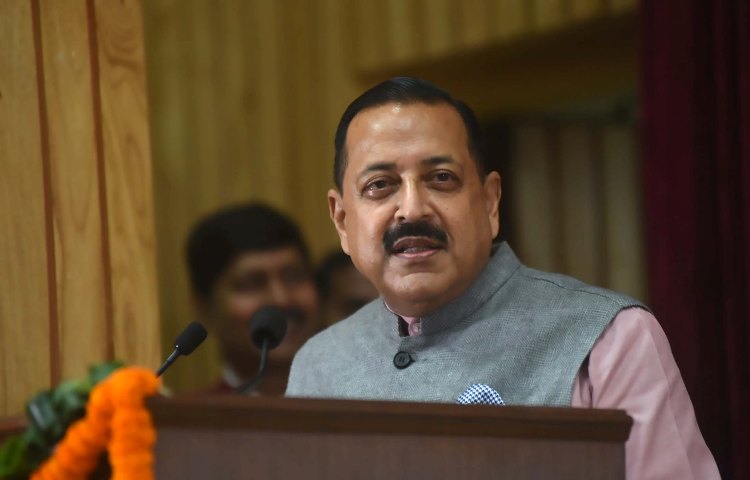DST has supported 42 projects to disseminate knowledge of advancement in future energy materials and specific batteries: Dr Jitendra Singh
Department of Atomic Energy (DAE), Govt. Of India has fabricated Sodium ion coin cell with energy density of ~200Wh per kilogram using indigenously synthesized electrode material.

- Country:
- India
Union Minister of State (Independent Charge) Science & Technology; Minister of State (Independent Charge) Earth Sciences; MoS PMO, Personnel, Public Grievances, Pensions, Atomic Energy and Space, Dr Jitendra Singh today said, Government is making efforts to promote research and innovation in future energy materials in general, and in aluminium ion batteries, sodium-ion batteries, polymer batteries and graphene-based batteries in specific.
In a written reply to a question in the Lok Sabha today, Dr Jitendra Singh informed that the Department of Science & Technology (DST) is supporting development of indigenous technology for batteries, especially in the field of graphene-based batteries. DST has also supported a project on Graphene Protected Si Nano-Spheres (interconnected) for Developing High Energy Density Li-Ion Battery.
He said, Science and Engineering Research Board (SERB) Statutory Body under the DST, has supported 42 projects including few national and international conferences/workshops in order to disseminate the knowledge of advancement in future energy materials in general, and in aluminium ion batteries, sodium ion batteries, polymer batteries and graphene based batteries in specific.
The Minister said, NITI Aayog has nudged institutions to focus on creating world-class EV R&D infrastructure and innovation programs to create future workforce and facilitate the acceleration in adoption of Electric Mobility ecosystem in India. So far 9 IITs have launched higher educational programmes at master’s and doctoral levels and some have established dedicated centres.
International Advanced Research Centre for Powder Metallurgy and New Materials (ARCI) autonomous Research and Development Centre of DST, is working on materials and devices for super-capacitor and Na-ion (Sodium ion) battery as future technologies. ARCI has been engaged in development of indigenous technologies to produce electrode materials (cathode and anode) in large quantities for Li-ion batteries for electric vehicles. ARCI has also been successfully demonstrated technologies for Lithium-Ion-Phosphate (LFP) and Lithinium Titanate (LTO), which are key materials in Li-ion batteries.
Indian Space Research Organization (ISRO) is working on indigenization of Graphite based materials and Lithium-ion cells for Space applications in view of high energy density and long life. R&D efforts on advanced materials based on cylindrical cells are in progress aiming to further improve energy density, cycle life and safety.
Department of Atomic Energy (DAE), Govt. Of India has fabricated Sodium ion coin cell with energy density of ~200Wh per kilogram using indigenously synthesized electrode material. In the field of lithium Ion batteries, a cost effective, lab scale synthesis procedure for electrode materials has been established and the technology has been transferred to several companies. Several efficient cathode materials for next generation Li-S battery have also been developed. A polymer-based proton battery has also been designed and fabricated. Organic - inorganic hybrid perovskite material namely, CH3NH3Pb13 is a newly discovered solar cell material with photovoltaic efficiency more than 28%. A new kind of advanced energy material, namely, AgCuS, shows very good thermo-electric properties. DAE in collaboration with Jawaharlal Nehru centre for Advanced Science Research (JNCASR) has been working for the use of AgCuSin waste energy harvesting applications.
Central Electro Chemical Research Institute (CECRI), a constituent of Council of Scientific and Industrial Research (CSIR) has been engaged in Greener and cheaper iron based redox flow batteries for energy storage applications; Exploring graphene-based polymer nanocomposites for supercapacitor applications; Enabling the development of Na-ion batteries Scaled-up synthesis of high power Li-ion battery materials-indigenous technology development; Electrospun nanofibers as functional materials for Lithium-Sulfur batteries; and Development of new Mg-S battery chemistry and electrodes through synthesis characterization and simulations.
(With Inputs from PIB)










